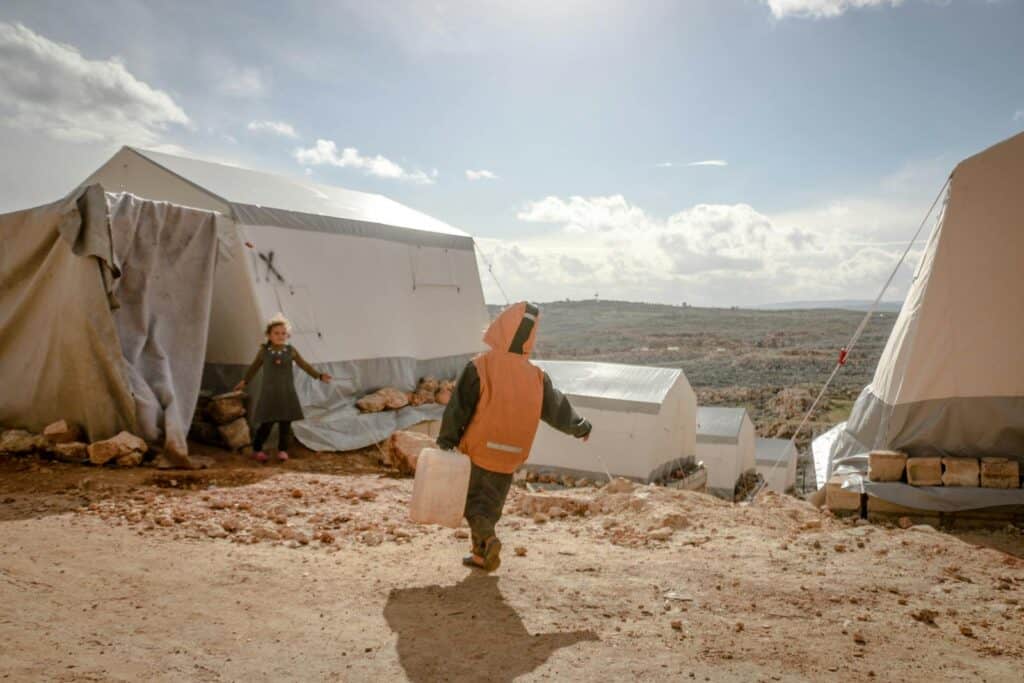In an ever-globalizing world, the phenomenon of remigration—returning to one’s country of origin after having migrated away—presents a complex tapestry of effects on family dynamics and bonds. This article delves into the multifaceted impact of remigration, exploring how individuals and families navigate the intricate process of reintegration into their original communities and the consequent ramifications on familial relationships. From understanding the foundational shifts in family dynamics to addressing the challenges and uncovering the positive outcomes, we embark on an insightful journey to dissect the nuanced ways in which remigration influences the core of family ties. Whether it is through the lens of emotional reconnection, the renegotiation of roles, or the revival of cultural heritage, the effects of remigration on family bonds offer a rich field of exploration that sheds light on the resilience and adaptability of families in the face of change.
### Understanding the Impact of Remigration on Family Dynamics
Remigration, the act of returning to one’s country of origin after spending time abroad, can have profound impacts on family dynamics and bonds. These effects can vary widely, depending on factors such as the length of time spent away, the reasons for both migration and remigration, and the individual family circumstances. Understanding these impacts is crucial for appreciating the full spectrum of challenges and opportunities that remigration can present to a family unit.
The return to a homeland often brings about a period of readjustment and reintegration for the remigrant. This process can influence family dynamics in numerous ways. Initially, there may be a sense of relief and joy from the family at the return of a loved one. However, this initial euphoria can quickly give way to a complex mix of emotions and challenges as the reality of reintegration sets in. For instance, the remigrant may have undergone significant personal changes during their time abroad, including shifts in values, behaviors, and expectations. These changes can sometimes lead to friction within the family as all members adjust to the new dynamics.
Moreover, the family members who stayed behind may also have experienced changes that the remigrant needs to adapt to. Children may have grown up and developed their own independent identities, partners may have taken on new roles within the household, and the overall family structure may have evolved. This can lead to a sense of disconnection and the feeling of being a stranger within one’s own family, complicating the reestablishment of strong family bonds.
Economic factors play a significant role in the dynamics of remigration. In some cases, remigrants return with savings and experiences that can significantly improve the family’s economic situation, leading to positive changes in the family dynamics. However, if the remigrant struggles to find employment or to readjust to the economic environment in their homeland, this can lead to stress and strain within the family.
The question of identity is another critical aspect of remigration’s impact on family bonds. The remigrant’s sense of identity may have been altered by their experiences abroad, just as the family’s collective identity may have shifted in their absence. Reconciling these changes and finding a new, shared identity can be a challenging process that requires time, patience, and open communication.
Despite these challenges, remigration also offers opportunities for strengthening family bonds. The shared experience of navigating the complexities of remigration can bring family members closer together, fostering a sense of mutual support and understanding. Furthermore, the remigrant can bring new perspectives and experiences that enrich the family culture, promoting growth and resilience.
In conclusion, the impact of remigration on family dynamics is multifaceted, involving a delicate balance of challenges and opportunities. By approaching the reintegration process with empathy, patience, and open communication, remigrants and their families can navigate these challenges together, ultimately strengthening their bonds and creating a more cohesive and resilient family unit.
Navigating the Challenges: How Remigration Affects Family Bonds
Remigration, the act of returning to one’s country of origin after spending significant time abroad, can significantly impact the dynamics within families, altering relationships in profound ways. This process often brings about a mix of emotions and challenges, as family members must navigate the complex terrain of reintegration and reconnection.
One of the primary effects of remigration on family bonds is the challenge of re-establishing connections. Family members who have stayed behind may find it difficult to relate to the experiences of the remigrant, leading to feelings of alienation. The remigrant, on the other hand, might struggle with the reverse culture shock and the realization that while they have changed, so too have their loved ones and the environment they left behind. This discrepancy in experiences and expectations can create a gap that is hard to bridge, affecting the closeness and understanding within the family.
Moreover, remigration can lead to shifts in family roles and dynamics. Often, those who return bring with them new ideas, attitudes, and behaviors acquired during their time abroad. This can disrupt established family roles and hierarchies, leading to conflict or tension. For instance, a remigrant might challenge traditional family values or norms, or they may have developed a more independent lifestyle that clashes with the collective family culture prevalent in many societies.
The financial aspect of remigration also plays a significant role in affecting family bonds. In cases where remigrants return due to successful stints abroad, they might be seen as a source of financial stability, altering the family’s power dynamics and possibly leading to dependency relations that strain relationships. Conversely, if the remigrant faces financial difficulties upon return, the family might need to adjust to a new, perhaps lower, standard of living, which can be a source of stress and disappointment.
Despite these challenges, remigration can also strengthen family bonds by fostering resilience and adaptation. Families that navigate the reintegration process successfully often develop stronger communication skills, a deeper understanding of each other’s perspectives, and a renewed appreciation for their collective identity and shared history. The experience can also encourage families to renegotiate their roles and expectations in ways that are more equitable and satisfying for all members.
To mitigate the negative effects and enhance the positive outcomes of remigration on family bonds, it is essential for families to engage in open and honest communication. Acknowledging the challenges and actively working through them together can pave the way for a smoother transition. Additionally, seeking support from community networks and professionals such as counselors or family therapists can provide families with the tools and strategies they need to navigate the complexities of remigration, ultimately strengthening their bonds in the face of change.
Strengthening Ties: Positive Outcomes of Remigration on Families
Remigration, the act of returning to one’s homeland after spending an extended period abroad, has profound implications for family dynamics and relationships. This phenomenon, often overlooked, can foster stronger familial connections and facilitate a deeper understanding and appreciation among family members. The positive outcomes of remigration on families are multifaceted, touching on emotional, social, and cultural aspects of life.
One of the key benefits of remigration is the opportunity it provides for family members to reconnect on a deeper level. Living abroad, individuals often face challenges and experiences that transform their perspectives and identities. Upon their return, these individuals bring back new insights, stories, and understandings that can enrich family conversations and bonding. Sharing these experiences can lead to a rejuvenated sense of closeness and empathy among family members, bridging gaps that may have formed during their absence.
Moreover, remigration can also lead to the reinforcement of cultural ties and traditions within the family. When individuals return to their homeland, they often bring back a renewed appreciation for their cultural heritage. This renewed interest can spark a desire to celebrate traditional customs, festivals, and languages that might have been neglected or underappreciated during their time abroad. As families engage in these cultural practices together, it strengthens their sense of identity and belonging, fostering a deeper connection to their roots and to each other.
Additionally, for families with children, remigration offers an invaluable opportunity for the younger generation to experience and connect with their ancestral culture firsthand. Children who have lived abroad or were born outside of their parents’ homeland may have limited exposure to their cultural heritage. The process of remigration allows these children to immerse themselves in the language, customs, and social norms of their family’s country of origin. This immersive experience can fortify their cultural identity and enhance familial bonds through shared cultural understanding and experiences.
Furthermore, remigration often prompts individuals to reflect on their priorities and values, leading to a renewed focus on family and relationships. The challenges of adapting to life in a foreign country can make the importance of familial support and connection more apparent. Upon returning home, many remigrants prioritize spending time with family, rebuilding relationships that may have been strained by distance and absence. This shift in priorities can lead to stronger, more resilient family bonds that are characterized by mutual support, understanding, and love.
In conclusion, the effects of remigration on family bonds are significantly positive, offering a chance for families to strengthen their ties through shared cultural experiences, deeper conversations, and a collective sense of belonging. By bridging the gap between generations and reinforcing cultural heritage, remigration can serve as a catalyst for nurturing stronger, more cohesive family units.

